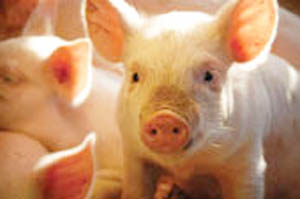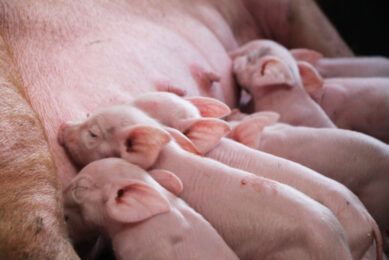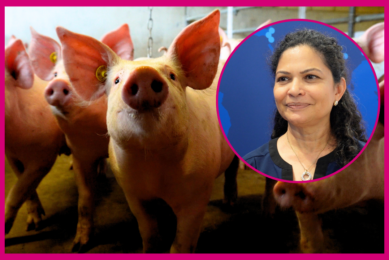Effects of glyphosate on livestock health

There is a need for further investigations to clarify if glyphosate (the active compound in Roundup and similar pesticides) residues in feed may affect the health of livestock; particularly in animals in sensitive physiological and productive phases, say scientists from Aarhus University, Denmark.
The introduction of genetically modified, glyphosate-tolerant plant varieties (GM glyphosate resistant plants) has led to an almost explosive increase in the global use of glyphosate.
The health effects of GM crops have been investigated in many different contexts. Nevertheless, discussions regularly disregard the potential health risks of pesticide residues derived from glyphosate-treated GM crops.
The Danish Ministry of Food and Agriculture therefore asked DCA – Danish Centre for Food and Agriculture at Aarhus University to describe the facts and assess the need for further investigation of potential adverse effects of feeding animals with products derived from glyphosate-treated GM crops.
Senior researcher Martin Tang Sørensen and colleagues from Department of Animal Science at Aarhus University have thus reviewed published studies and other relevant material in order to identify potential risks to livestock health.|
Hypotheses regarding potential risks of glyphosate
“There are no data indicating risks associated with the use of the GM crop in itself,” says Sørensen. He does, however, present two hypotheses that would need experimental evidence to be be rejected or accepted:
1. Glyphosate residues in GM crops can negatively affect the microorganisms in the gut of farm animals with secondary effects on animal production and health.
2. Glyphosate residues in GM crops can negatively affect the mineral status of farm animals with secondary effects on animal production and health.
These two hypotheses are based on known effects of glyphosate: i) glyphosate has antimicrobial properties and different gut microorganisms have different tolerances to glyphosate; ii) glyphosate can bind minerals and thereby potentially reduce the availability of essential micro-minerals that have vital functions in farm animals.
Farm animals in particular during sensitive phases in terms of physiology and production, such as high-yielding cows right after calving or piglets immediately after weaning, are likely to be most vulnerable to the potential effects of glyphosate.
The hypotheses are supported by recent laboratory studies demonstrating that some pathogenic bacteria are less inhibited by glyphosate than non-pathogenic bacteria. Furthermore, a German study has recently been published where glyphosate was found in the urine of cows that at the same time had low levels of micro-minerals in the blood.
Sørensen and his colleagues therefore conclude that there is a need for investigations to clarify if feed with residues of glyphosate may have negative effects on the health of livestock. Glyphosate residues may be found in imported as well as home-grown feed.
Read the memorandum “The feeding of genetically modified glyphosate-resistant soy products to livestock“.
Further information: Senior researcher Martin Tang Sørensen, Department of Animal Science, email: martint.sorensen@agrsci.dk, telephone: +45 8715 7819
Source: Claus Bo Andreasen, Aarhus University











